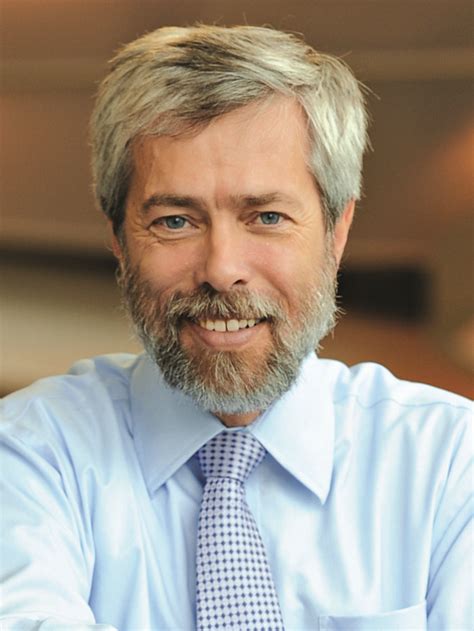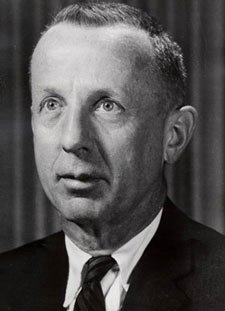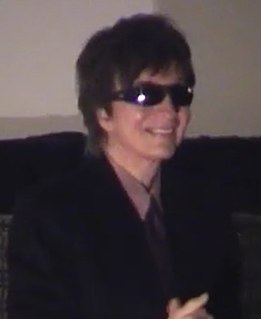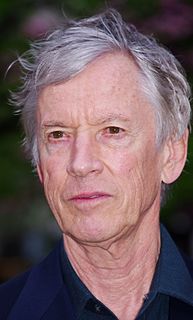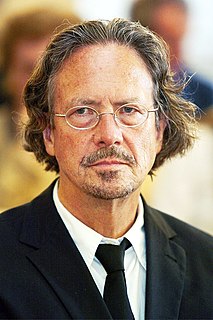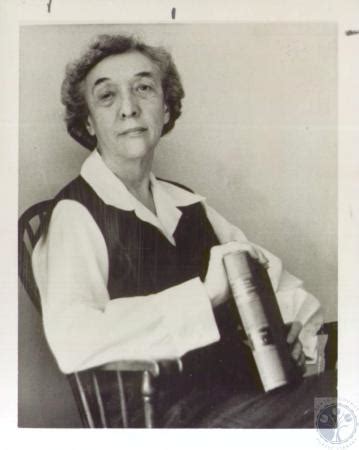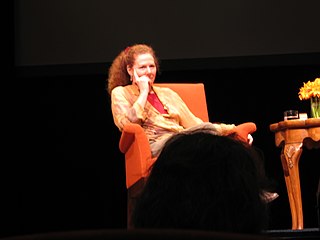Top 162 Tolstoy Quotes & Sayings - Page 3
Explore popular Tolstoy quotes.
Last updated on April 16, 2025.
I don't think we should just 'muddle through' and ignore the question of life's meaning. Or better, perhaps, I don't think it is a question that can be ignored once the business of asking about the worth and significance of what one is doing - one's work, one's pleasures, one's ambitions and so on - has got going. You can't at any point stop the urge to ask Tolstoy's questions, '... and then what?', 'What's the point of that?'.
Reading the very best writers—let us say Homer, Dante, Shakespeare, Tolstoy—is not going to make us better citizens. Art is perfectly useless, according to the sublime Oscar Wilde, who was right about everything. He also told us that all bad poetry is sincere. Had I the power to do so, I would command that these words be engraved above every gate at every university, so that each student might ponder the splendor of the insight.
Excellent teachers showered on to us like meteors: Biology teachers holding up human brains, English teachers inspiring us with a personal ideological fierceness about Tolstoy and Plato, Art teachers leading us through the slums of Boston, then back to the easel to hurl public school gouache with social awareness and fury.
I just can't imagine my life without Dostoevsky and The Brothers Karamazov. I can spin off of that and talk about Crime and Punishment and Tolstoy. I could talk about other novels, but for me it's Dostoevsky. His sheer size and grandeur, his sacramentality, his ecclesiology, and his sense of the human predicament are as powerful as it gets. Can't imagine not reading the Russians.
We possess the Canon because we are mortal and also rather belated. There is only so much time, and time must have a stop, while there is more to read than there ever was before. From the Yahwist and Homer to Freud, Kafka, and Beckett is a journey of nearly three millennia. Since that voyage goes past harbors as infinite as Dante, Chaucer, Montaigne, Shakespeare, and Tolstoy, all of whom amply compensate a lifetime's rereadings, we are in the pragmatic dilemma of excluding something else each time we read or reread extensively.
We need a more complex understanding of writers working under authoritarian or repressive regimes. Something to replace this simpleminded, Cold War-ish equation in which the dissident in exile is seen as a bold figure, and those who choose to work with restrictions on their freedom are considered patsies for repressive governments. Let's not forget that most writers in history have lived under nondemocratic regimes: Shakespeare, Tolstoy, and Goethe didn't actually enjoy constitutionally guaranteed rights to freedom of speech.
I read a lot. I always have, but in those two years I gorged myself on books with a voluptuous, almost erotic gluttony. I would go to the local library and take out as many as I could, and then lock myself in the bedsit and read solidly for a week. I went for old books, the older the better - Tolstoy, Poe, Jacobean tragedies, a dusty translation of Laclos - so that when I finally resurfaced, blinking and dazzled, it took me days to stop thinking in their cool, polished, crystalline rhythms.
One of the things that really impressed me about Anna Karenina when I first read it was how Tolstoy sets you up to expect certain things to happen - and they don't. Everything is set up for you to think Anna is going to die in childbirth. She dreams it's going to happen, the doctor, Vronsky and Karenin think it's going to happen, and it's what should happen to an adulteress by the rules of a nineteenth-century novel. But then it doesn't happen. It's so fascinating to be left in that space, in a kind of free fall, where you have no idea what's going to happen.
Tolstoy didn't know about steampunk or cyborgs, but he did know about the nightmarishness of steam power, unruly machines, and the creepy half-human status of the Russian peasant classes. In 'Anna Karenina,' nineteenth-century life itself is a relentless, relentlessly modern machine, flattening those who oppose it.
The ideal woman which is in every man's mind is evoked by a word or phrase or the shape of her wrist, her hand. The most beautiful description of a woman is by understatement. Remember, all Tolstoy ever said to describe Anna Karenina was that she was beautiful and could see in the dark like a cat. Every man has a different idea of what's beautiful, and it's best to take the gesture, the shadow of the branch, and let the mind create the tree.
Tolstoy said, 'The antagonism between life and conscience may be removed either by a change of life or by a change of conscience.' Many of us have elected to adjust our consciences rather than our lives. Our powers of rationalization are unlimited. They allow us to live in luxury and indifference while others, whom we could help if we chose to, starve and go to hell.
Debasement was limited at first to one’s own territory. It was then found that one could do better by taking bad coins across the border of neighboring municipalities and exchanging them for good with ignorant common people, bringing back the good coins and debasing them again. More and more mints were established. Debasement accelerated in hyper-fashion until a halt was called after the subsidiary coins became practically worthless, and children played with them in the street, much as recounted in Leo Tolstoy’s short story, Ivan the Fool.
I'm happy to have interns at The Weekly Standard and happy to have readers of The Weekly Standard, but if you all tell me that you were busy reading Plato and [Lev] Tolstoy and playing violin in the orchestra, I'd say that was great. I wouldn't tell you to take time out from that to get involved in political journalism.
If you really think back to the great writers, there's a lot of happiness in Tolstoy; there's a lot of love, there's childbirth, and there's dances. And likewise in Shakespeare and even Cervantes, there's a lot of celebrations of the positive manifestations of life. Technically, I found it harder to do, so that's kind of a good late-life challenge - without getting sentimental or chirpy.
In high school I read [Lev] Tolstoy's "Anna Karenina" and loved it. Then I read [Friedrich] Nietzsche's "On the Genealogy of Morals" and that hit me hard. I don't know where I got it. My parents warned me not to mention either of those books when I went for my college interviews so I wouldn't seem like an egghead. They told me to talk about sports.
Woman, I hold, is the personification of self-sacrifice, but unfortunately today she does not realize what a tremendous advantage she has over man. As Tolstoy used to say, they are laboring under the hypnotic influence of man. If they would realize the strength of non-violence they would not consent to be called the weaker sex.
Leo Tolstoy, the greatest anti-patriot of our time, defines patriotism as the principle that will justify the training of wholesale murderers; a trade that requires better equipment in the exercise of man-killing than the making of such necessities as shoes, clothing, and houses; a trade that guarantees better returns and greater glory than that of the honest workingman.
I'm a reader. I like - I'm a great reader. I keep going back, though, to certain authors, just like I love film, but I keep going back to just five or six certain filmmakers. In literature I like Chekhov, for example; I think he's my favorite. And Flaubert - you know, that kind of concision. But I also like Tolstoy; I love those romances that, you know, weigh 500 pounds and take months and months and months to read.
Everything Tolstoy wrote is precious, but I found this final statement of the truth about life as he had come to understand it particularly beautiful and moving. 'That is what I have wanted to say to you, my brothers. Before I died.' So he concludes, giving one a vivid sense of the old man, pen in hand and bent over the paper, his forehead wrinkled into a look of puzzlement very characteristic of him, as though he were perpetually wondering how others could fail to see what was to him so clear - that the law of love explained all mysteries and invalidated all other laws.
I had amazing intellectual privilege as a kid. My mom taught me to read when I was two or three. When I was five, I read and wrote well enough to do my nine-year older brother's homework in exchange for chocolate or cigarettes. By the time I was 10, I was reading Orwell, Tolstoy's 'War and Peace,' and the Koran. I was reading comic books, too.
Washington was a typical American. Napoleon was a typical Frenchman, but Lincoln was a humanitarian as broad as the world. He was bigger than his country - bigger than all the Presidents together. We are still too near to his greatness,' (Leo) Tolstoy (in 1908) concluded, 'but after a few centuries more our posterity will find him considerably bigger than we do. His genius is still too strong and powerful for the common understanding, just as the sun is too hot when its light beams directly on us.' (748)
Isaiah Berlin once said that there are two kinds of writers, hedgehogs and foxes. He said the fox knows many things, the hedgehog knows just one thing. So Shakespeare is a typical fox; Tolstoy and Dostoyevsky are typical hedgehogs. Now, I'm a typical hedgehog. I know just one thing, and I repeat it over and over again. I try to approach it from different angles to make it look different, but it's the same thing.
Einstein's space is no closer to reality than Van Gogh's sky . The glory of science is not in a truth more absolute than the truth of Bach or Tolstoy, but in the act of creation itself. The scientist's discoveries impose his own order on chaos, as the composer or painter imposes his; an order that always refers to limited aspects of reality, and is based on the observer's frame of reference, which differs from period to period as a Rembrant nude differs from a nude by Manet.
But this thing, whatever it was, this mistlike something, hung there inside my body like a certain kind of potential. I wanted to give it a name, but the word refused to come to mind. I’m terrible at finding the right words for things. I’m sure Tolstoy would have been able to come up with exactly the right word
I think it's a very stark marker of what kind of president we have that, from all available evidence, Donald Trump has not read a book, as an adult. This is not someone who sits down in the evening to consider the latest bestseller, let alone Tolstoy - but who is very very active on this medium that requires no discipline and no attention and no empathy. It is all about retweeting praise of oneself or very quickly or poorly considered, ill-typed, misspelled diatribes against other people.
We need to look at what Europe is doing to get better and try to get better ourselves. We need to make some changes and that can only be good for the game. Tolstoy once said, 'Everybody wants to change the world, but they don't want to change themselves.' So we all have to change our thinking and focus on getting our kids better.
If you think of even Tolstoy or a book like 'Anna Karenina,' you go from character to character, and each section is from the third person perspective of a different character, so you get to see the whole world a little more kaleidoscopically that way. That's traditional narrative manner, and I haven't done a book like that before, but I enjoyed it.
William Shakespeare was the most remarkable storyteller that the world has ever known. Homer told of adventure and men at war, Sophocles and Tolstoy told of tragedies and of people in trouble. Terence and Mark Twain told cosmic stories, Dickens told melodramatic ones, Plutarch told histories and Hans Christian Andersen told fairy tales. But Shakespeare told every kind of story – comedy, tragedy, history, melodrama, adventure, love stories and fairy tales – and each of them so well that they have become immortal. In all the world of storytelling he has become the greatest name.
The slight, the facile and the merely self-glorifying tend to drop away over the centuries, and what we are left with is the bedrock: Homer and Milton, the Greek tragedian and Shakespeare, Chaucer and Cervantes and Swift, Dostoyevsky and Tolstoy and James and Conrad. Time does not make their voices fainter, on the contrary, it reinforces our sense of their truth-telling capacity.
In a vacuum all photons travel at the same speed. They slow down when travelling through air or water or glass. Photons of different energies are slowed down at different rates. If Tolstoy had known this, would he have recognised the terrible untruth at the beginning of Anna Karenina? 'All happy families are alike; every unhappy family is unhappy in its own particular way.' In fact it's the other way around. Happiness is a specific. Misery is a generalisation. People usually know exactly why they are happy. They very rarely know why they are miserable.




